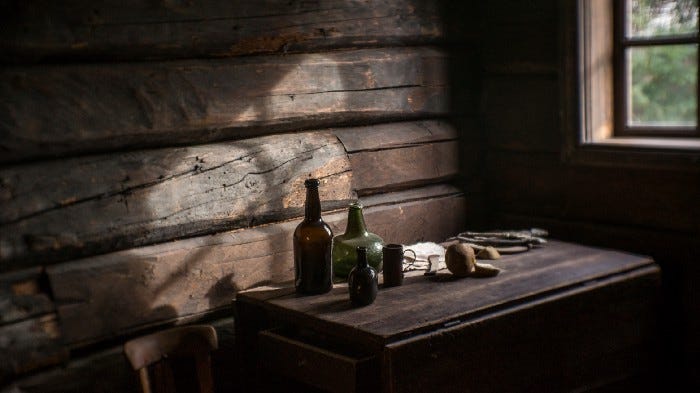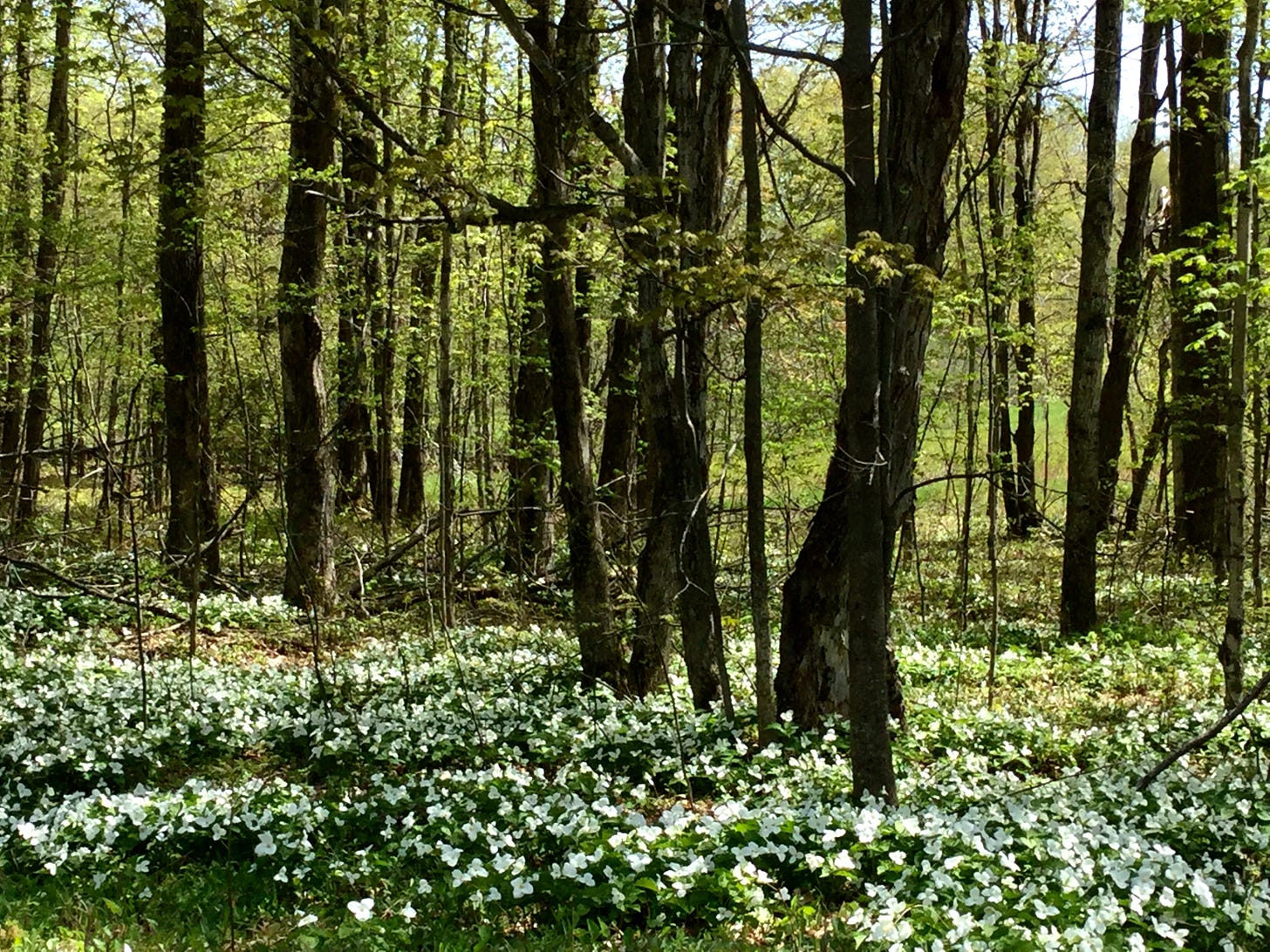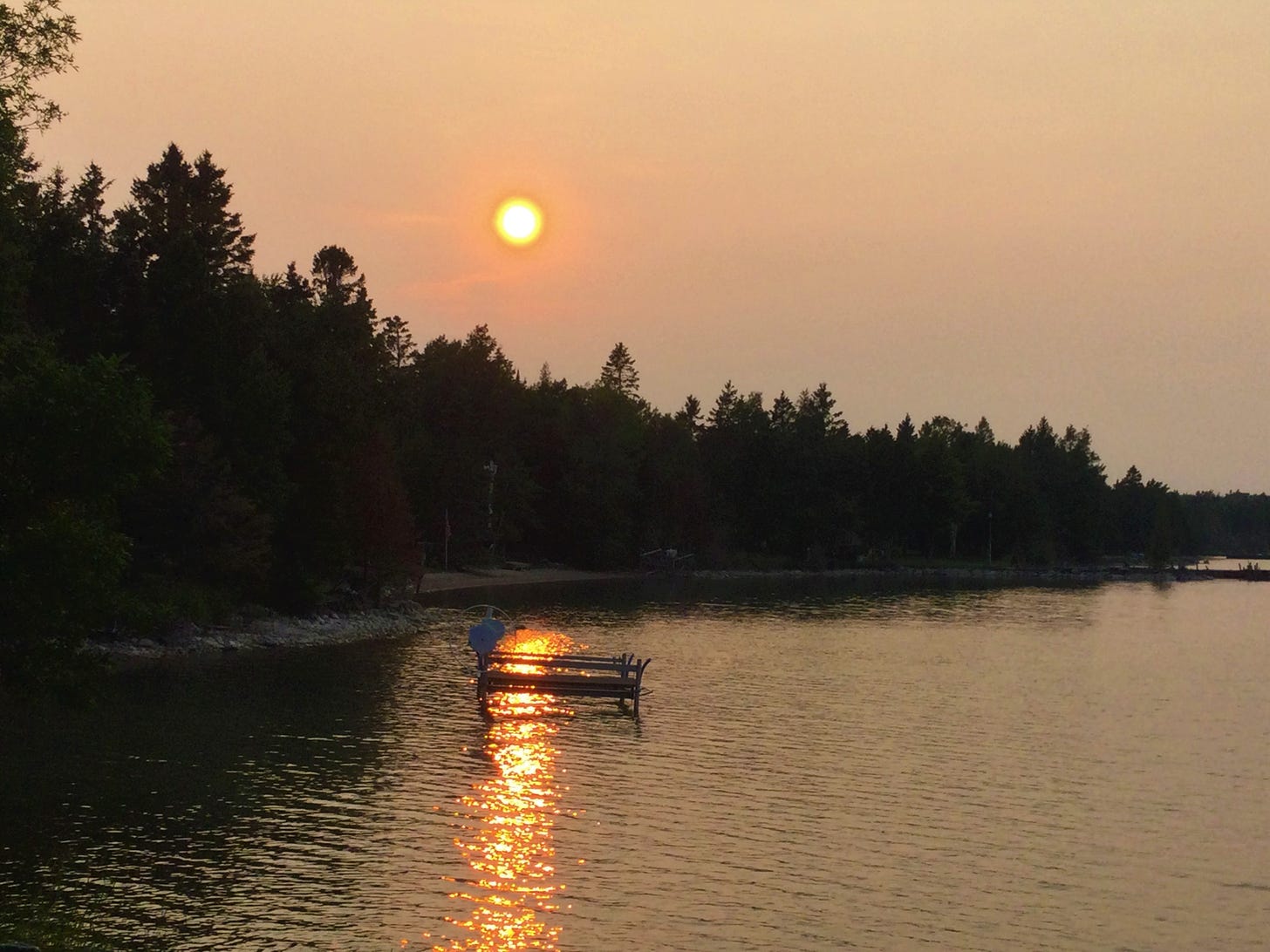
In Thoreau’s Walden, he says, “I went to the woods because I wished to live deliberately, to front only the essential facts of life, and see if I could not learn what it had to teach, and not, when I came to die, discover that I had not lived.”
It may be the most famous quote from Thoreau’s journals, written in the mid-1840s, soon after he built a rough 10x15 cabin on his friend Ralph Waldo Emerson’s woodlot.
Millions of people since then have taken it as the clarion call for a stab at their own mystical wilderness experiences — and a fine set of words they are. But the truth is, as deliberate a life as Thoreau might have lived, as solitary as he may have been, secluded he was not.
His rude cabin on the shores of Walden Pond was a mere mile and a half from Concord, and within calling distance of a spot where two active roads converged. Emerson allowed him to build his cabin in exchange for some work around the 14-acre property — namely clearing away brush and replanting trees — with the idea that Thoreau would use the rest of his time there to write.
He was not a hermit, even though he liked to use that word in his writings. Turns out it was tongue-in-cheek, but even now we don’t care. We want to believe. The legend lives on.
Thoreau was a mere 23 years old when he moved to Walden Pond. He lived there for a little over two and a half years, and then, for reasons that aren’t clear, he moved back to Emerson’s house in town. It was an experiment, an adventure, and when it was over Thoreau moved on.
He could hear train whistles:
As I sit at my window this summer afternoon, hawks are circling about my clearing; the tantivy of wild pigeons, flying by two and threes athwart my view, or perching restless on the white pine boughs behind my house, gives a voice to the air; a fish hawk dimples the glassy surface of the pond and brings up a fish; a mink steals out of the marsh before my door and seizes a frog by the shore; the sedge is bending under the weight of the reed-birds flitting hither and thither; and for the last half-hour I have heard the rattle of railroad cars, now dying away and then reviving like the beat of a partridge, conveying travellers from Boston to the country.
When I was younger and locked away in the city, I read Walden (and Civil Disobedience later, in the 60s or 70s, when “disobedience” against the ruling factions was considered a radical thing). I must have missed the parts where he describes the closeness of civilization:
The Fitchburg Railroad touches the pond about a hundred rods south of where I dwell. I usually go to the village along its causeway, and am, as it were, related to society by this link. The men on the freight trains, who go over the whole length of the road, bow to me as to an old acquaintance, they pass me so often, and apparently they take me for an employee.
I wanted to believe he was foraging in the silent wilderness, living from morning till night in complete silence, his courage his only companion.
In the midst of the chaos of my own young life, the thought of living so simply in a small cabin in the woods was seductive. During a fair number of fleeting moments, I worked at devising an escape plan that would take me away and plunk me down in a Walden Pond of my own.
So imagine my surprise when I discovered just how close Walden Pond was to Concord. How unlike any kind of wilderness Thoreau’s setting really was.
I discovered it only after my husband and I were old enough to retire, and we moved to the kind of “wilderness” not unlike Thoreau’s. I live on an island accessible only by boat or plane. The nearest “city” (Population: 14,310) is a 10-minute ferry ride and an hour’s drive away. I’m surrounded by trees, and when I look out on the bay it’s as if I’m all alone. I can pretend, if I look straight ahead, that there is no human habitation, but I have neighbors on either side of me close enough to be in hollering distance. I’m three houses away from a small marina, where, all summer, it’s a draw for boats on bouncy, noisy trailers, passing by, rumbling the air, cancelling out any sounds of nature.
To say I was disappointed in Thoreau’s dilettantish ruminating about quietude is an understatement. I was as mad at myself as I was at him. How could he have deceived me? How could I have been so easily deceived?
It was the times, I think. Thoreau — or the idea of Thoreau — was popular during those years when Mother Earth News and macrame and barnwood walls in houses became a thing. We yearned to be self-sustaining. We wanted peace.
But it was his writing that did it in the end. It turns out he was a writer, and a pretty good one, even if his notion of “wilderness” was far different from his reality.
Consider this:
Books are the carriers of civilization. Without books, history is silent, literature dumb, science crippled, thought and speculation at a standstill. I think that there is nothing, not even crime, more opposed to poetry, to philosophy, ay, to life itself than this incessant business.
And this: Our life is frittered away by detail. Simplify, simplify.
And, of course, this: The mass of men lead lives of quiet desperation. What is called resignation is confirmed desperation.
Yes, I needed that.
As I read Thoreau now, I see that he was seeking something he knew going in he couldn’t achieve. It was more wish than truth, and, though his longing was as real as my own, he knew he wasn’t far enough away.
Much of Walden reads as an apology. He wants us to believe he was a hermit, at peace with his decision to shut himself off from civilization, but, as a chronicler of life around him, he couldn’t help but write about the village, the people, the railways, the commerce. These were the things he saw as he dreamed of the wilderness.
I wonder if that’s not what keeps his works alive, even now. Not the truth, but the longing. What we’re looking for is the hope that any attempt at solitude will lead us to that quiet place where we can explore, where we can find the meaning of life.
Even if it’s only as distant as a room of our own.





I'm wondering how different Walden Pond was back then. Concord must have been a mere village then, don't you think? When I moved to Cape Cod 23 years ago, my mother's old house was completely surrounded by forest. Since then, people sold lots and houses were built. Now we hear leaf blowers and lawnmowers and diggers and the quiet we originally enjoyed is gone. The new residents are refugees from the city and think they can make as much noise as they want. Sometimes, loud music, loud parties. So, strangely enough, we are preparing to move to the city where neighbors tend to be quieter.
Although his solitude was incomplete, I think he was always there with me after I first read his work as a teenager, and I am grateful. It made me more comfortable with my own personality, which when viewed from the outside comes across as a bit too standoffish. I just require less human interaction than most people. Anything that makes people stop and think about following the crowds and fads of their era is a good thing in my opinion.